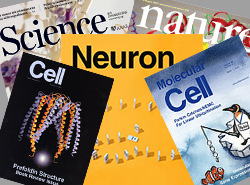Publication of IMPRS-LS student Jara Tabitha Hees

Hees, J.T., and Harbauer, A.B.
Biomolecules, 2022, 12, 1595.
doi: 10.3390/biom12111595
Metabolic Regulation of Mitochondrial Protein Biogenesis from a Neuronal Perspective
Neurons critically depend on mitochondria for ATP production and Ca2+ buffering. They are highly compartmentalized cells and therefore a finely tuned mitochondrial network constantly adapting to the local requirements is necessary. For neuronal maintenance, old or damaged mitochondria need to be degraded, while the functional mitochondrial pool needs to be replenished with freshly synthesized components. Mitochondrial biogenesis is known to be primarily regulated via the PGC-1α-NRF1/2-TFAM pathway at the transcriptional level. However, while transcriptional regulation of mitochondrial genes can change the global mitochondrial content in neurons, it does not explain how a morphologically complex cell such as a neuron adapts to local differences in mitochondrial demand. In this review, we discuss regulatory mechanisms controlling mitochondrial biogenesis thereby making a case for differential regulation at the transcriptional and translational level. In neurons, additional regulation can occur due to the axonal localization of mRNAs encoding mitochondrial proteins. Hitchhiking of mRNAs on organelles including mitochondria as well as contact site formation between mitochondria and endolysosomes are required for local mitochondrial biogenesis in axons linking defects in any of these organelles to the mitochondrial dysfunction seen in various neurological disorders.
